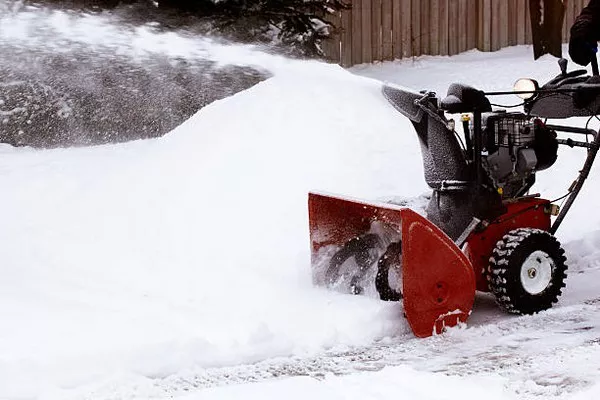As winter blankets the landscape with snow, homeowners turn to their trusty snow blowers to clear pathways and driveways. For those who rely on electric snow blowers to tackle the task, selecting the appropriate extension cord becomes a critical consideration. The type and quality of the extension cord can significantly impact the performance and safety of your electric snow blower. In this article, we delve into the factors to consider when choosing the right extension cord for your electric snow blower, ensuring efficient operation and peace of mind during winter storms.
Understanding the Basics
Electric snow blowers offer a convenient and eco-friendly alternative to their gas-powered counterparts. However, these machines require a reliable power source to function optimally. A suitable extension cord serves as the bridge between your snow blower and the electrical outlet, ensuring a steady supply of power.
Before delving into the specifics, it’s crucial to understand the fundamental concepts of extension cords:
Gauge (AWG): The gauge of an extension cord refers to the thickness of its wires. Lower gauge numbers represent thicker wires capable of handling higher electrical loads. For electric snow blowers, a lower gauge extension cord is preferred.
Length: The length of the extension cord determines the distance between your snow blower and the power source. While longer cords offer more flexibility, they can also result in power loss due to resistance.
Rating: Extension cords are rated based on their maximum electrical capacity, expressed in amps or watts. It’s essential to choose a cord with a rating that matches or exceeds the power requirements of your snow blower.
Factors to Consider
Gauge of the Extension Cord: The gauge of the extension cord is perhaps the most crucial factor to consider. Electric snow blowers typically require extension cords with a gauge between 10 and 12 AWG. A 10 AWG cord is suitable for longer distances and heavy-duty applications, while a 12 AWG cord is suitable for shorter distances.
Length of the Cord: While longer extension cords provide more flexibility, they can also lead to power loss due to increased resistance. Opt for the shortest cord length that allows you to cover your desired area without sacrificing performance.
Power Rating: Your electric snow blower’s user manual will specify its power requirements in terms of amps or watts. Choose an extension cord with a power rating that matches or exceeds these requirements to ensure proper functioning.
Outdoor Use: Electric snow blowers are designed to operate outdoors, so it’s crucial to select an extension cord rated for outdoor use. Look for cords with a “W” on the label, indicating that they are designed for wet conditions.
Safety: Prioritize safety by selecting extension cords with built-in features such as grounding plugs, strain relief, and a robust insulation layer. These features protect against electrical hazards and ensure the longevity of your extension cord.
Type of Outlet: Check the type of electrical outlet you have available. If your snow blower uses a three-prong plug, make sure the extension cord has a three-prong receptacle as well.
Brand and Quality: Investing in a high-quality extension cord from a reputable brand can significantly impact its durability and overall performance. Cheaper, low-quality cords may not provide the necessary power or safety features.
Calculating the Right Cord Length
To determine the appropriate cord length for your electric snow blower, consider the layout of your outdoor space. Measure the distance from the nearest electrical outlet to the farthest point you need to reach. Keep in mind that using an excessively long extension cord can lead to power loss and reduced performance.
Caring for Your Extension Cord
Proper maintenance of your extension cord ensures its longevity and safe operation. Here are a few tips to keep in mind:
Inspect Regularly: Check your extension cord for any signs of damage, such as fraying, exposed wires, or cracks. Replace damaged cords immediately.
Storage: When not in use, store your extension cord in a cool, dry place. Avoid tightly coiling the cord, as this can lead to kinks and damage.
Unplug Safely: Always unplug the extension cord from the outlet by gripping the plug itself. Yanking the cord can damage the wires and connectors.
Avoid Overloading: Never overload the extension cord by plugging in multiple high-power devices simultaneously. This can lead to overheating and potential hazards.
Elevate: Keep the extension cord elevated to prevent it from lying in pooled water or snow.
In Conclusion
Selecting the right extension cord for your electric snow blower is a crucial step in ensuring its optimal performance and safety during the winter months. Consider factors such as the gauge of the cord, its length, power rating, outdoor suitability, and safety features. By choosing the right extension cord and properly maintaining it, you can confidently clear snow-covered pathways without compromising on efficiency or safety.

